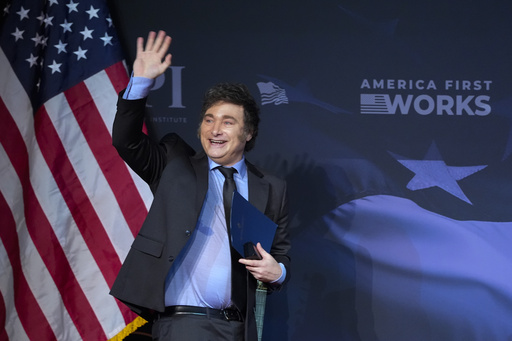
BUENOS AIRES, Argentina — During a United Nations vote on a resolution aimed at condemning violence against women and girls, some expected nations, such as Iran, Russia, and North Korea, chose to abstain. However, the most surprising moment came when Argentina, widely regarded as a leader in social progress in Latin America, stood alone by voting against the resolution. This decision invoked widespread criticism from various political factions within the country. It highlights a significant shift under President Javier Milei, who is recognized as the most right-wing leader Argentina has seen in its 41 years of democracy.
President Milei’s administration has undertaken a series of foreign policy changes that align closely with the approaches of the United States and Israel. This vote against the nonbinding resolution, drafted jointly by France and the Netherlands, adds to growing concerns over Argentina’s current stance on global issues. Just days prior, Milei, known for his skepticism toward climate change, abruptly recalled the Argentine negotiation team from the U.N. climate summit in Baku, Azerbaijan. This has raised fears that he intends to follow in the footsteps of former U.S. President Donald Trump, potentially leading to Argentina’s withdrawal from the 2015 Paris climate agreement.
The implications of Argentina’s vote at the UN are profound, especially given that it occurred after the G20 nations collectively endorsed language promoting gender equality, with Argentina being the sole exception. The response from the conservative party associated with former President Mauricio Macri reflected the depth of the situation: “Argentina votes alone, against the rest of humanity,” they expressed on social media.
As Milei’s presidency unfolds, he continues to display unpredictable behavior reminiscent of Trump’s. Recently, he became the first foreign leader to meet Trump post-election in a casual encounter at the annual gala for the America First Policy Institute at Mar-a-Lago in Florida. Pictures from this lavish event showed Milei, well-dressed and smiling next to Trump, and tech mogul Elon Musk, with whom Milei has crafted a public friendship based on shared views against “wokeness,” gender discussions, and socialist principles.
In November 2023, after winning the presidency, Milei received a significant mandate from a discontented electorate grappling with high inflation and financial instability, which prompted demands for economic reform. However, this libertarian agenda coincides with contentious cultural battles he is waging, both domestically and internationally. Milei’s administration has restructured ministries and targeted institutions that previously promoted women’s rights and environmental causes.
Senator Martín Lousteau, who leads the centrist Unión Cívica Radical party, criticized the government for its isolationist tendencies arising from these cultural disputes. He described Argentina’s vote at the UN as a “disgrace,” while top official Guillermo Francos defended the decision by asserting that treaties would not solve the pervasive issue of gender violence.
Rising tensions surrounding Milei’s cultural policies reached a peak this month when Argentina voted in the U.N. to lift the economic embargo against Cuba, leading to the dismissal of Foreign Minister Diana Mondino. He replaced her with businessman Gerardo Werthein, previously Argentina’s ambassador to the U.S. This shift reflects a desire to solidify a foreign policy that embraces Milei’s radical views, distancing Argentina from prior commitments made in areas such as climate action and gender equality.
Local news outlets indicate that at least seven experienced diplomats resigned recently, deemed inadequate to pursue the new administration’s repudiation of international collaboration. Milei has claimed that such multilateral agreements compromise national freedom.
The left-leaning Peronist movement, which has historically influenced Argentine politics, expressed outrage at the government’s direction, particularly regarding the potential erosion of recent social advancements, including the landmark legalization of abortion in 2020 and initiatives to reduce fossil fuel reliance. Milei has labeled abortion as “murder” and dismissed climate change as a fabrication. Prominent Peronist politician Mayra Mendoza encapsulated the discontent, stating, “For you, freedom is violence.”
